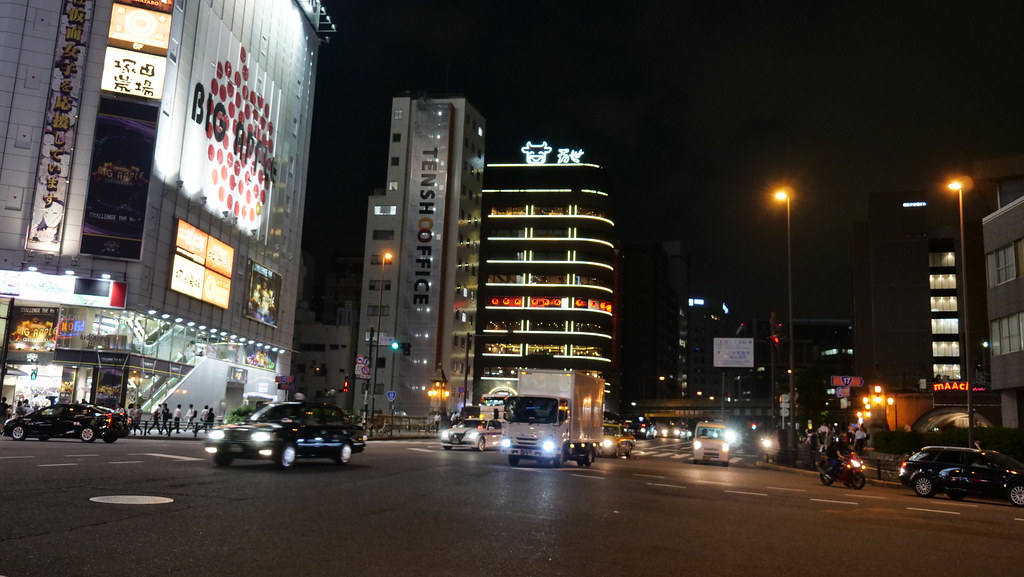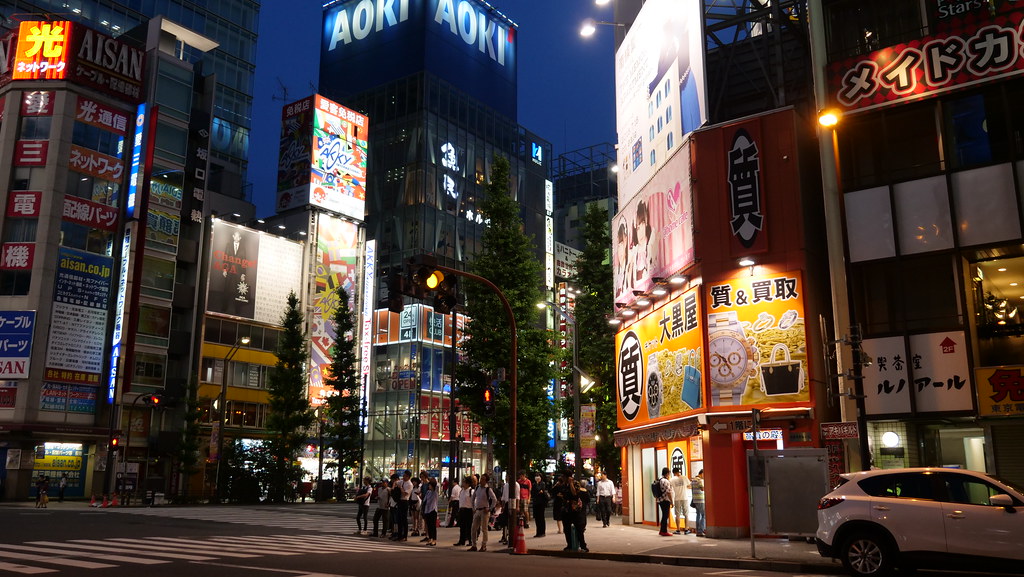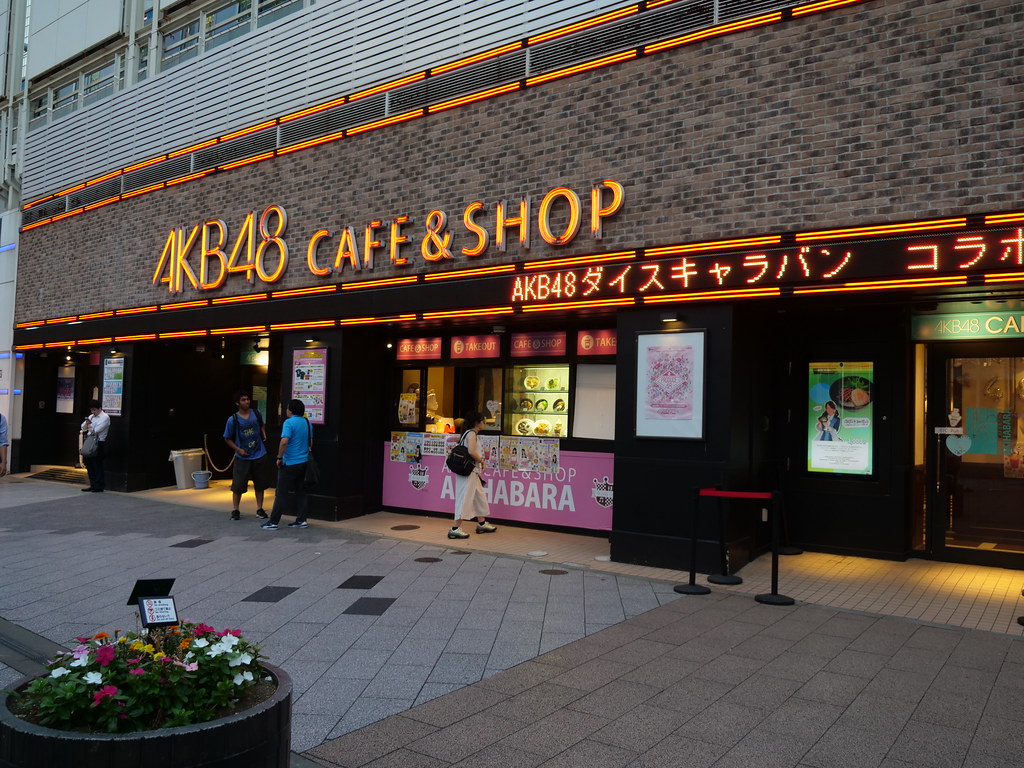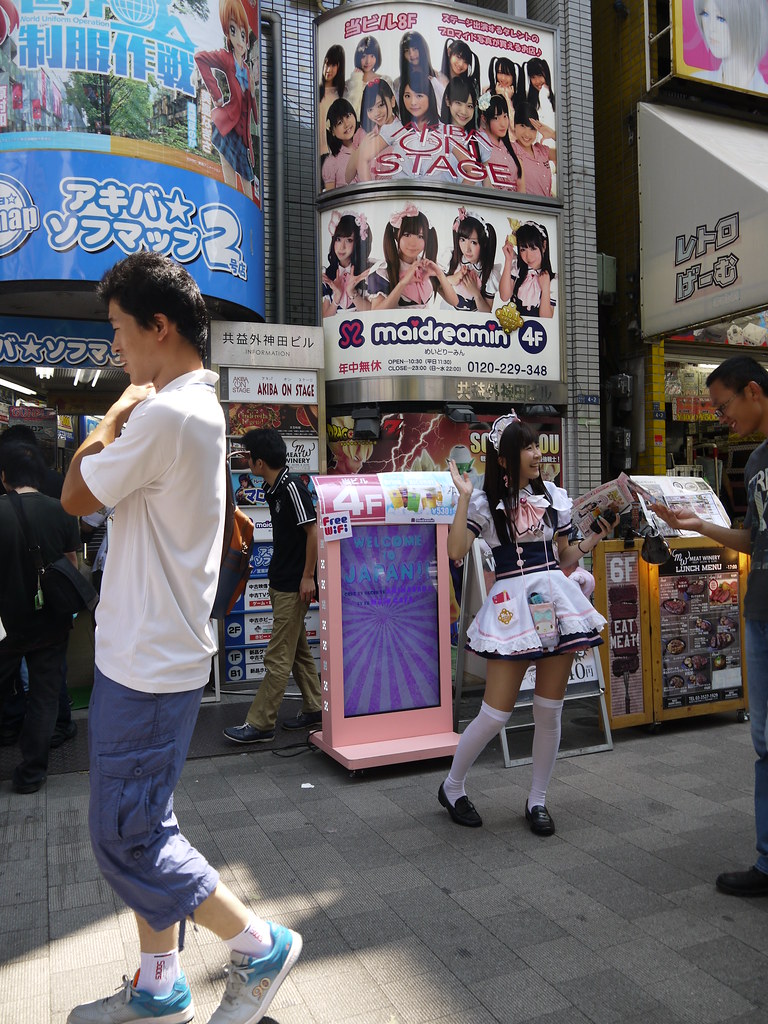
Akihabara (Akihabara) is a famous commercial district in Tokyo, Japan, centered around Akihabara Station. Geographically, it includes areas such as Sotokanda, Kanda-Sakumacho, and Kanda-Hanaokacho in Chiyoda Ward, as well as the Akihabara area in Taito Ward. The district is renowned for its concentration of home appliance and electronics retailers, video game and anime stores, and information technology companies, making it one of Tokyo’s key hubs for electronics and entertainment culture.
Historical Development
The name "Akihabara" originates from the Akiba Shrine that once stood in the area. Before World War II, it was a densely populated residential zone. After the Great Tokyo Fire, the government undertook large-scale clearing and reconstruction to prevent fires from spreading to imperial facilities. From the Meiji to Showa periods, the electrification of railways boosted transportation development, and Akihabara briefly became the site of a wholesale fruit and vegetable market, with its former location near today’s Akihabara UDX building.
Following Japan's rapid postwar economic growth, Akihabara became a hub for selling electronic components like vacuum tubes and radios, gradually evolving into the globally famous "Electric Town." Major shops at the time focused on home appliances, computers, and peripherals. Akihabara was considered one of Japan’s three major electronics districts, alongside Nipponbashi in Osaka and Osu in Nagoya.
Rise of Subcultures
In the 1990s, as the home appliance market reached saturation, Akihabara's commercial focus shifted toward computers, video games, and anime culture. Numerous stores selling games, manga, and anime-related products opened, attracting a large fanbase passionate about “2D” culture. This further solidified Akihabara’s identity as a center for otaku and subculture communities.
The establishment of the AKB48 Theater further enhanced Akihabara's role in pop culture, making it a major pilgrimage site for fans and tourists alike.
Current Status and Commercial Features
Today, Akihabara is home to a wide variety of shops selling electronic components, computer hardware, software, games, anime merchandise, models, figurines, and more. It continues to draw tourists from around the world eager to experience its unique atmosphere.
Key shopping areas such as Chuo-dori serve as hotspots for electronics displays and sales, while Sotokanda 3-chome is known for stores specializing in components, wiring, and tools. Narrow alleyways are densely packed with specialty shops for digital photography products. In recent years, large chain stores such as LAOX have also opened locations, offering more convenient shopping experiences.





























































